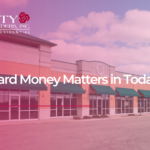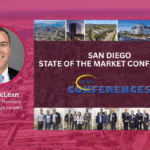A home loan is a significant long-term financial investment. To avoid making irreversible but costly mistakes, it’s always best to know what you’re getting into before signing any paperwork. If you’re considering applying for a mortgage in Los Angeles, do your research first and ask your prospective lender the following questions.
-
- What is the best mortgage for me?
Your home loan options include:
-
-
- 15- or 30-year fixed-rate mortgage, where the interest rate doesn’t fluctuate over the entire loan term.
- Variable-rate mortgage with an interest rate that changes periodically over the life of the loan.
- Interest-only mortgage, where you only pay the monthly loan interest for a certain period. After the interest-only period, you may have the option to pay the outstanding loan all at once or in bigger installments.
- A negative amortization loan lets you pay only a portion of the interest. As a result, the outstanding loan balance keeps increasing.
- What are the specific costs for the loan?
-
Not all costs or amounts owed are obvious to the borrower. Ask the lender to explain everything you’ll be paying for, including:
Closing costs
These costs are usually 2-5 percent of the home loan. You may pay the fees out of pocket or roll them into the mortgage and pay along with your monthly installments. The fees are usually for items like:
-
-
- Generating your credit report
- Mortgage appraisal
- Title search
- Origination and underwriting fee
- Transfer tax
- Property inspection
-
Discount
You may earn discount points for paying your interest early. Each point earned lowers your interest rate by one percent.
Interest rate
The applicable interest rate impacts your monthly payments towards clearing the mortgage. Rates can vary from borrower to borrower as follows:
-
-
- A lower credit score increases your interest rate
- Your residence (interest rates in your state or even city may differ from other locations)
- Higher down payment may qualify you for a lower interest rate
- Fixed vs. variable rate (an adjustable rate may be initially lower than the fixed option. However, it can increase or decrease during the loan period)
- Loan duration (typically, the longer the duration the higher the interest rates)
- Type of loan (government-backed FHA, VA, and USDA loans may have lower interest rates than traditional mortgages)
- Locking the interest rate prevents it from increasing or decreasing throughout the life of the loan
- Will I be liable for prepayment penalties?
-
You may be penalized for paying off a 30-year mortgage within 2 or 3 years of obtaining it. The penalty is a percentage of the outstanding loan balance. Lenders lose revenue when loans are prematurely paid off, so they may discourage it by penalizing borrowers.
-
- What’s the smallest acceptable down payment?
A smaller down payment (below the standard rate of 20 percent) increases the accessibility of mortgages, but it raises your interest rate. However, some traditional and FHA lenders may accept down payments as low as 3.5 percent. You’ll need to purchase private mortgage insurance to qualify for a low-down payment financial facility.
-
- Will there be any hidden costs?
Ask your prospective lender about any miscellaneous costs for which you’re responsible. Other applicable fees may include:
-
- Flood letter fees
- Tax transcript fees
By getting answers to these questions when applying for a mortgage, you can avoid expensive surprises in the future. If you’re looking for affordable financing to acquire your dream home, contact the experts at Fidelity Mortgage Lenders today. We are happy to answer your questions and help you get the best mortgage for your unique financial situation.
Comments are closed.







